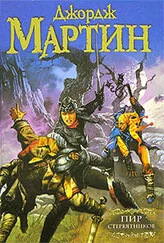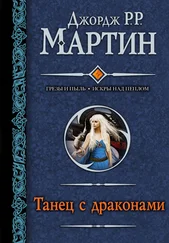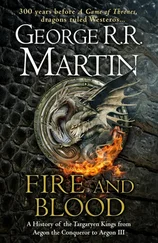Alyn Velaryon came ashore as well, and the Manderly brothers returned once more from White Harbor with a hundred knights in blue-green cloaks. Even from across the narrow sea they came, from Braavos and Pentos, all three of the Daughters, Old Volantis. From the Summer Isles appeared three tall black princes in feathered cloaks, whose splendor was a wonder to behold. Every inn and stable in King’s Landing was soon full, whilst outside the walls a city of tents and pavilions arose for those unable to find accomodations. A great deal of drinking and fornication took place, claims Mushroom; a great deal of prayer and fasting and good works, reports Septon Eustace. The tavernkeepers of the city waxed fat and happy for a time, as did the whores of Flea Bottom, and their sisters in the fine houses along the Street of Silk, though the common people complained about the noise and stink.
A desperate, fragile air of forced fellowship hung over King’s Landing in the days leading up to the wedding, for many of those crowding cheek by jowl into the city’s wine sinks and pot shops had stood upon opposite sides of battlefields a year ago. “If only blood can wash out blood, King’s Landing was full of the unwashed,” says Mushroom. Yet there was less fighting in the streets than most expected, with only three men killed. Mayhaps the lords of the realm had finally grown weary of war.
With the Dragonpit still largely in ruins, the wedding of Prince Aegon and Princess Jaehaera was celebrated out of doors, at the top of Visenya’s Hill, where towering grandstands were erected so the men and women of the nobility might sit in comfort and enjoy an unobstructed view. The day was cold but sunny, Septon Eustace records. It was the seventh day of the seventh moon of the 131st year after Aegon’s Conquest, a most auspicious date. The High Septon of Oldtown performed the rites himself, and a deafening roar went up from the smallfolk when His High Holiness declared the prince and princess one. Tens of thousands packed the streets cheering Aegon and Jaehaera as they were carried in an open litter up to the Red Keep, where the prince was crowned with a circlet of yellow gold, simple and unadorned, and proclaimed Aegon of House Targaryen, the Third of His Name, King of the Andals, the Rhoynar, and the First Men, and Lord of the Seven Kingdoms. Aegon himself placed the crown upon the head of his child bride.
Though a solemn boy, the new king was undeniably handsome, lean of face and form, with silver-white hair and purple eyes, whilst the queen was a beautiful child. Their wedding was as lavish a spectacle as the Seven Kingdoms had seen since the coronation of Aegon II in the Dragonpit. All that was lacking were dragons. There would be no triumphal flight around the city walls for this king, no majestic descent upon the castle yard. And the more observant made note of another absence. The Dowager Queen was nowhere to be seen, though as Jaehaera’s grandmother, Alicent Hightower ought to have been present.
As he was still but ten years of age, the new king’s first act was to name the men who would protect and defend him, and rule for him until he came of age. Ser Willis Fell, the sole survivor of the Kingsguard of King Viserys’s time, was made Lord Commander of the White Swords, with Ser Marston Waters as his second. As both men were considered greens, the remaining places in the Kingsguard were filled with blacks. Ser Tyland Lannister, recently returned from Myr, was made Hand of the King, whilst Lord Leowyn Corbray was named Protector of the Realm. The former had been a green, the latter a black. Over them would sit a council of regency, consisting of Lady Jeyne Arryn of the Vale, Lord Corlys Velaryon of Driftmark, Lord Roland Westerling of the Crag, Lord Royce Caron of Nightsong, Lord Manfryd Mooton of Maidenpool, Ser Torrhen Manderly of White Harbor, and Grand Maester Munkun, newly chosen by the Citadel to take up Grand Maester Orwyle’s chain of office.
(It is reliably reported that Lord Cregan Stark was also offered a place amongst the regents, but refused. Conspicuous omissions from the council included Kermit Tully, Unwin Peake, Sabitha Frey, Thaddeus Rowan, Lyonel Hightower, Johanna Lannister, and Benjicot Blackwood, but Septon Eustace insists that only Lord Peake was truly angered by his exclusion.)
This was a council of which Septon Eustace heartily approved, “six strong men and one wise woman, seven to rule us here on earth as the Seven Above rule all men from their heaven.” Mushroom was less impressed. “Seven regents were six too many,” he said. “Pity our poor king.” Despite the fool’s misgivings, most observers seemed to feel that the reign of King Aegon III had begun on a hopeful note.
The remainder of the year 131 AC was a time of departures, as the great lords of Westeros took their leaves of King’s Landing one by one to return to their own seats of power. Amongst the first to flee were the Three Widows, after bidding tearful farewells to the daughters, son, siblings, and cousins who would remain to serve the new king and queen as companions and hostages. Cregan Stark led his much-diminished host north along the kingsroad within a fortnight of the coronation; three days later, Lord Blackwood and Lady Alysanne set out for Raventree, with a thousand of Stark’s northerners as a tail. Lord Lyonel and his paramour, the Lady Sam, rode south for Oldtown with their Hightowers, whilst Lords Rowan, Beesbury, Costayne, Tarly, and Redwyne joined to escort His High Holiness to the same destination. Lord Kermit Tully and his knights returned to Riverrun, whilst his brother Ser Oscar set sail with his Stormbreakers for Tyrosh and the Disputed Lands.
There was one who did not depart as planned, however. Ser Medrick Manderly had agreed to take the men bound for the Wall as far as White Harbor on his galley North Star . From there they were to proceed overland to Castle Black. On the morning the North Star was to sail, however, a count of the condemned revealed a man was missing. Grand Maester Orwyle, it seemed, had experienced a change of heart as regarded taking the black. Bribing one of his guards to loose his fetters, he had changed into a beggar’s rags and disappeared into the stews of the city. Unwilling to linger any longer, Ser Medrick sentenced the guard who had freed Orwyle to take his place, and the North Star sought the sea.
By the end of 131 AC, Septon Eustace tells us, a “grey calm” had settled over King’s Landing and the crownlands. Aegon III sat the Iron Throne when required, but elsewise was little seen. The task of defending the realm fell to the Lord Protector, Leowyn Corbray, the day-to-day tedium of rule to the blind Hand, Tyland Lannister. Once as tall and golden-haired and dashing as his twin, the late Lord Jason, Ser Tyland had been left so disfigured by the queen’s torturers that ladies new to court had been known to faint at the sight of him. To spare them, the Hand took to wearing a silken hood over his head on formal occasions. This was perhaps a misjudgment, for it gave Ser Tyland a sinister aspect, and before very long the smallfolk of King’s Landing began to whisper tales of the malign masked sorcerer in the Red Keep.
Ser Tyland’s wits remained sharp, however. He might have been expected to have emerged from his torments a bitter man intent upon revenge, but this proved far from true. Instead the Hand claimed a curious failure of memory, insisting that he could not recall who had been black and who green, whilst demonstrating a dogged loyalty to the son of the very queen who had sent him to the torturers. Very quickly Ser Tyland achieved an unspoken dominance over Leowyn Corbray, of whom Mushroom says, “He was thick of neck and thick of wit, but never have I known a man to fart so loudly.” By law, both the Hand and the Lord Protector were subject to the authority of the council of regents, but as the days passed and the moon turned and turned again, the regents convened less and less often, whilst the tireless, blind, hooded Tyland Lannister gathered more and more power to himself.
Читать дальше




![Джордж Мартин - Сыны Дракона [лп]](/books/33039/dzhordzh-martin-syny-drakona-lp-thumb.webp)







